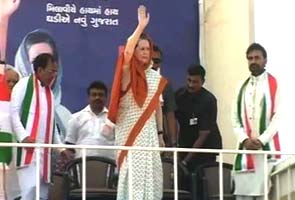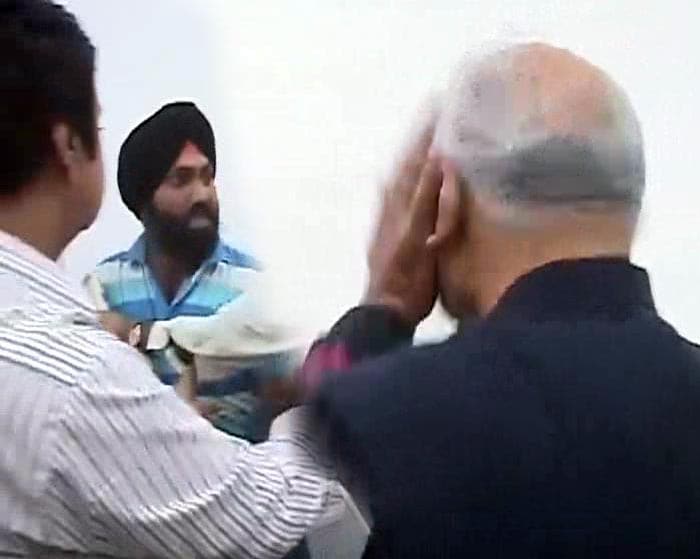They all look and act the same, with cosmetic differences, after you have sat down and taken stock. Why don’t the Congress, the Bharatiya Janata Party (BJP), and the Aam Aadmi Party (AAP) just form a coalition and be done with it? We can then have all their marketing ploys under one roof - secularism, development and no corruption. The rag-a-tag Third Front can work as an opposition. The Communists, Samajwadi Party, Bahujan Samaj Party and all the regional political groups can keep these three on their toes. This is if we ignore the fact that they all have enemies within.
The Congress topi has already become redundant. It used to be the Gandhi cap, which Gandhi never wore. The AAP cap tries hard to mimic the common man, especially Mumbai’s dabbawallas. It is quite a sight to see Bollywood stars and a banker who has declared a Mercedes among her assets don that cap saying ‘Aam Aadmi’. The BJP wears an invisible RSS cap. All leaders end up with some head-gear on their campaign trail to appear affable to the locals. One leader refused to wear a skull cap, though. But he even refused to wear spandex tights.
Unlike the United States of America we do not have clear Red and Blue states, but rainbow states, with rain and shine, slush and dryness. People are spoilt for choice and yet there does not seem to be one that a person who is not ‘naturally’ aligned would veer towards.
I have to keep repeating that these are general elections, not assembly polls, where a good candidate who fixes sewers, listens to citizens’ woes, attends kiddie parties, passes files for parks and sports grounds would work. Here you are directly casting a vote for a political party and the candidate is only a medium. S/he might visit your constituency occasionally, but the major decisions will be based on which party comes to power.
Then there is the debate about party manifestos. “Where is the manifesto?” I have been hearing the shrill cries in TV studios. How many people read the manifesto? Do not talk about only the few of us who manage to go through excerpts reproduced in the newspapers. We read the promises, are happy or disappointed with various offerings on paper. Do we ever put the parties on the mat to pledge that they will not change the basic values that they stand for and you voted for and ally with a party whose candidates they have publicly abused and put you through the same torture? How is this not crucial when it ought to form the backbone of who they are?
After much deliberation, I have come to the decision to support NOTA (none of the above). I have reservations even about this ‘nothing’, and had talked about it here. This is not a U-turn for me. It happens to be the only way in which I can assert that not making a choice is also a choice.
I had written the following:
Is NOTA an opinion? It sounds good on paper. But it won't have an impact.
The EC has already clarified that the candidate securing the highest number of votes would be declared elected even if the number of electors going for the NOTA option surpassed the votes polled by the electoral contestants.
There goes the non vote. NOTA is a wasted opinion, and chances are that those who have made this choice would publicly claim otherwise, if the party that comes to power looks cosmetically good. Will those who opted for NOTA come out and claim to be votaries of it?
In some ways, the rejection of all candidates is a rejection of the electoral process. If no one is good enough, then just boycott. 'None of the above' reeks of self-righteousness, rather than an opinion.
I admit I am being self-righteous. Personally, I can and may boycott the elections, but I have no right to urge or even suggest that others do the same. NOTA has got constitutional validity and I can proselytise about it, although I will not.
It brings us to the other question I raised: Will I sneak out of this after the results are announced and it could help me to stand by the victor? No. That is the reason I have put up the NOTA logo in the sidebar on this blog. I shall remove it only after the finale.
© Farzana Versey
--
Note to those who read me:
As you know, I try and engage with the comments. For the past few weeks I have been tardy, and it might continue for some time. Besides, where political stories are concerned I do not write anything I do not believe in, so it just ends up as reaffirming what I have already stated. I shall keep the comments box open, but will not respond to everything. A simple ‘thank you’ and ‘lovely’ is not my style. So, hope you understand and accept my thanks in advance for just reading and spending time thinking about it, thinking your own thoughts. I am sure your views would be of interest to others too, including me.














